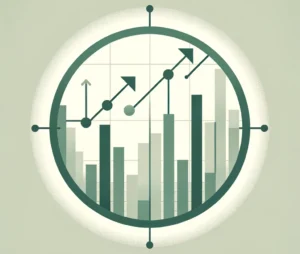Switching from being a code creator to a bug hunter might feel like stepping into a whole new world. But remember, without change, there’s no adventure.
In this blog post, you’ll discover how to smoothly transition from software development to testing, ensuring you’re well-prepared for your exciting new role.
Quick Takeaways:
- Leverage your developer skills like analytical thinking and attention to detail for a smooth transition into testing.
- Dive into learning new methodologies and tools such as Agile and Selenium to equip yourself for the testing landscape.
- Gain real-world experience by contributing to open-source projects, showcasing your proactive approach to potential employers.
Why Make the Leap from Developer to Tester?
Thinking of switching lanes from software development to testing? You’re eyeing a landscape with its own set of challenges and rewards, and you’re not alone in pondering this move. Many find allure in cultivating a new perspective on software, not just building it but ensuring it works flawlessly across scenarios unforeseen during development. This pivot often stems from a yearning for change—be it thirsting for new challenges, a shift toward a more analytical role, or a budding passion for software quality and user satisfaction.
Transitioning from development to testing opens a window to a world where your knack for catching bugs is as celebrated as your ability to write bug-free code. It’s about shifting focus from creation to critique, ensuring that products not only work well but also deliver fantastic user experiences.
What Skills Can You Transfer from Development to Testing?
Developers harbor a suite of skills that can seamlessly transfer to a testing role. Your time in the trenches of coding hasn’t just honed your technical prowess; it’s ingrained in you a deep-rooted understanding of software architecture and problem-solving capabilities that are gold in the testing arena.
- Analytical Thinking: Your developer days have equipped you with a knack for dissecting complex problems, a skill critical in identifying and resolving software bugs.
- Attention to Detail: Crafting code that runs smoothly requires an eagle eye—an attribute that translates well into spotting glitches in the expansive sea of software testing.
- Understanding of Software Lifecycle: Having been in the trenches, you understand the birth-to-release journey of software, an insider knowledge that enriches your testing insights.
- Programming Knowledge: Yes, testers benefit from coding skills, too! Automated testing tools often require scripting to create test cases.
Sprinkle these developer-acquired traits with a dash of curiosity and a penchant for breaking things (ethically, of course), and you’ve got the perfect concoction for a budding software tester.
How to Gain the Necessary Testing Skills?
Venturing into testing demands broadening your skill set beyond what you’ve mastered as a developer. Here’s how you can bridge the gap:
- Learn Testing Methodologies: Familiarize yourself with Agile, DevOps, and Continuous Integration/Continuous Deployment (CI/CD) methodologies. These aren’t just buzzwords; they are revolutionizing how we think about software development and testing.
- Master Testing Tools: Dive into tools like Selenium for automated testing or JIRA for bug tracking. A pro tip: Many online platforms offer hands-on tutorials. For instance, Selenium’s own website provides a wealth of resources to get started with automation testing.
- Understand Different Types of Testing: It’s not just about finding bugs. Learn the nuances between manual, automated, performance, and security testing. Each of these areas has its own set of tools and practices. For a deep dive into security, start with OWASP, a rich resource for understanding software security vulnerabilities.
- Get Some Real-world Experience: Here’s a unique tip – contribute to open-source projects! It’s a twofold win: you get practical testing experience and give back to the community. Sites like GitHub offer myriad opportunities to test software under development and report issues.
Remember, shifting from development to testing isn’t downshifting—it’s a lane change on the tech highway. It’s about leveraging your accumulated wisdom in new ways, discovering bugs before they become headaches for users, and ensuring software isn’t just good but great. And who knows? This could be the exciting new chapter you’ve been looking for in your tech career.
What Does a Career Path in Testing Look Like?
If you’re considering switching gears from software development to testing, you’re likely curious about where this new path could take you. Fear not! The testing world is vast and filled with opportunities for growth, leadership, and innovation. Let’s peel back the layers and see what this journey might look like for you.
Starting off, you might enter the field as a Test Analyst or a Quality Assurance (QA) Analyst. These are the folks with their boots on the ground, crafting and executing test cases, and ensuring the software behaves as it should. It’s a role where keen attention to detail is your best friend and where you’ll learn the ropes of systematic software evaluation.
As you grow, you might step into a Senior QA Analyst role, leading testing efforts on larger projects, mentoring new testers, and even designing testing frameworks. This phase of your career is all about deepening your expertise and starting to take on more strategic responsibilities.
Ready for a leadership leap? The Test Manager or QA Lead positions could be your next move. Here, you’ll oversee testing teams, strategies, and collaborate closely with other department leads to ensure software quality aligns perfectly with business goals. Leadership skills and a strategic mindset are key players in this arena.
And for those with a love for cutting-edge technology and processes, roles like Automation Test Engineer or Performance Test Engineer are on the table as well. These specialties focus on using technology to streamline testing processes—think automated testing scripts or performance testing software.
Throughout these roles, continuous learning and adapting to new testing methodologies and tools will be part of your day-to-day. Embrace it! This field is always evolving, and so will you.
How to Start Applying for Testing Jobs?
Transitioning from software development to testing is less about starting over and more about shifting perspective. Here’s how you can make your move:
Tweak Your Resume: Highlight your problem-solving skills and any experience you have with quality assurance, even if it’s not from a dedicated testing role. Developed a knack for catching bugs in your past projects? Pioneered a new testing tool or framework? Those achievements deserve a spot on your resume.
Preparation for Interviews: Expect to answer questions about your approach to testing, how you handle ambiguous bug reports, and your methodology for prioritizing test cases. Pro tip: Brush up on the basics of popular testing methodologies like Agile and Scrum, as well as tools like Selenium or JIRA, depending on your interest area.
Look for Openings: Leverage job search engines and websites specific to tech jobs, like Dice or Stack Overflow Jobs. Don’t overlook the power of LinkedIn to discover opportunities and connect with potential employers.
Networking: Get involved with online communities and forums like the Ministry of Testing or attend tech meetups in your area. The testing community is remarkably supportive and can be a goldmine for advice, mentorship, and job leads.
Certifications: Although not mandatory, having a few certifications under your belt can significantly bolster your resume. Consider starting with the ISTQB Certified Tester Foundation Level (CTFL) certification—it’s widely recognized and provides a solid foundation in software testing principles.
Unique Insight
And here’s something most might not tell you: Get hands-on with open-source projects. Contributing to these projects can not only sharpen your testing skills but also show potential employers you’re proactive and passionate about quality software. It’s one of the few opportunities where the experience can be as valuable as formal work history, and it can be a real differentiator on your resume.
Remember, switching to a career in testing doesn’t mean you’re starting from scratch. You’re simply steering your ship towards new horizons, armed with a wealth of development experience that will only make you a more insightful and effective tester. Embrace the journey, stay curious, and let your passion for quality software lead the way.







